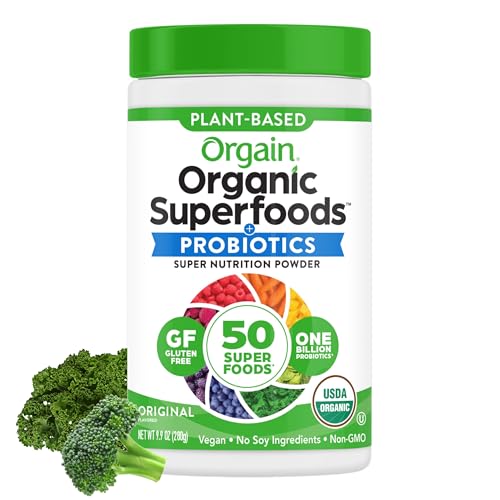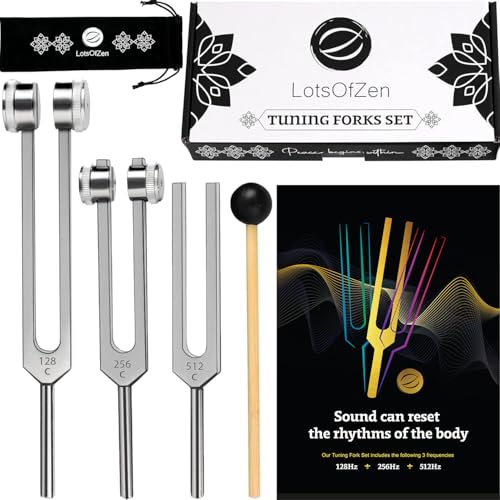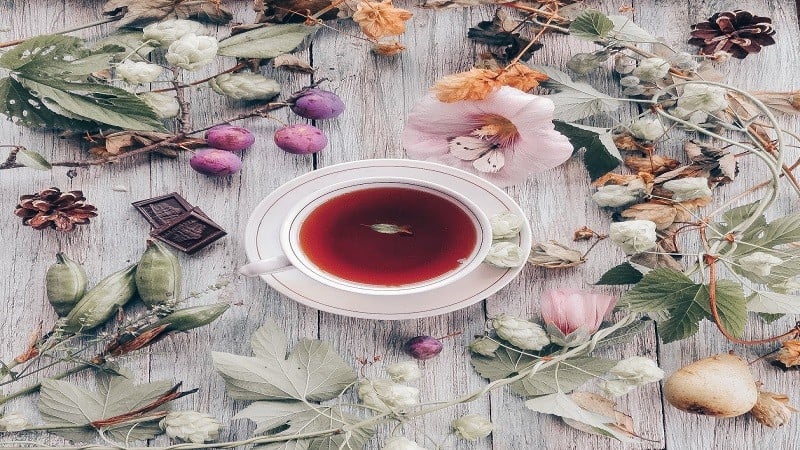Hemorrhoids are a natural occurrence in our bodies and are usually not a cause for concern. However, if you start to notice any changes around your anus or see blood, it may be a good idea to visit your doctor and get started on some hemorrhoids treatment.
Getting a hemorrhoid diagnosis can relieve stress over the swelling and bleeding because hemorrhoids can be shrunk down, and the symptoms can be managed and treated. Whether it be using topical creams, different lifestyle changes, changes to your diet, or taking natural supplements, there are a lot of different options to explore.
Let’s take a look at what hemorrhoids actually are, how to treat them, and in particular, which natural supplements for hemorrhoids you should be trying.
What are Hemorrhoids?
Hemorrhoids, also known as piles, are swollen or inflamed veins in your bowel, rectum, and anus. There are two types of hemorrhoids, internal and external. Internal hemorrhoids are found inside the rectum, and external hemorrhoids are found around the skin of the anus. External hemorrhoids are the more common kind and cause more discomfort. There can be itching, pain, and difficulty in sitting down.

Hemorrhoids are actually more common than you would think. Almost seventy-five percent of adults will experience hemorrhoids at least once, and half of those adults will experience hemorrhoids or hemorrhoid symptoms by the age of fifty.
The common symptoms of hemorrhoids include itching around the skin of the anus, irritation, and pain as a result of the inflammation, painful lumps forming around the anus, bowel movements that are painful, bleeding from the anus, and fecal leakage.
Although some of these symptoms may seem very alarming, particularly the sight of blood in the toilet following a bowel movement, it is important to remember that hemorrhoids are not life-threatening and can be treated in various ways.
You may be wondering what causes hemorrhoids. They generally occur when there is too much strain and pressure on the veins in the bowel, the rectum, and around the anus. The pressure can come from extreme strain during bowel movements, constipation over a long period of time, during pregnancy, lifting something too heavy, and sitting for extended periods.
Hemorrhoids also have a genetic tendency. It is possible that if you have a family history of hemorrhoids, you are likely to have them at some point in your life. They are also a greater risk for people who are overweight or obese.
Natural Supplements for Hemorrhoids
When it comes to natural supplements for hemorrhoids, we have a few foods that you can increase your intake of and vitamins and nutrients that you can add to your diet. Let’s take a look at the different options for you to explore:
1. Fiber
Fiber is one of the most important tools for hemorrhoids treatment. The amount of fiber in your diet and your body is essential in determining the ease and regularity of your bowel movements. Having a high fiber diet can make your stool softer and give it more substance so that you do not have to strain yourself during bowel movements.
Fiber can be found in many foods, such as whole wheat, bran, brown rice, leafy green vegetables, lentils, oats, and beans. It is super easy to increase your intake of these foods in your daily diet. However, if you are unable to increase fiber intake through food for some reason, there are many different supplement options too. We recommend you try the MyFy Natural Prebiotic Fiber Supplement Powder (ASIN: B082XBPY7G) and the GoBiotix Prebiotic Fiber Boost soft gel pills (ASIN: B077MFYLSS).
2. Flavonoids
Flavonoids are anti-inflammatory compounds that strengthen the veins in the body and can help reduce the risk of hemorrhoids. The flavonoids which have been seen to reduce symptoms like bleeding and swelling are diosmin, hesperidin, quercetin, and rutin.
Flavonoids are found in different plants, vegetables, and fruits such as red cabbage, onions, kale, berries, tea, and red wine. You can also get flavonoids from supplements like the Diosmin Expert Hemorrhoid and Leg Vein Supplement Tablets (ASIN: B01IF089E0).
3. Psyllium Husk
Psyllium husk is a type of soluble fiber supplement that is made from the husks of the Plantago ovata plant’s seeds. It helps to increase your daily intake of fiber, makes your stool softer, and gives it more substance so that you do not have to strain yourself during bowel movements.
With softer stool, your hemorrhoids can heal faster, and you will also feel less pain during bowel movements. With psyllium husk, it is also important to increase the amount of water you are drinking. Hydration is very important for regular and healthy bowel movements.
For supplements, we suggest the Health Nutrition Naturals Psyllium Husk Extra Strength Capsules (ASIN: B07V7ZBVPF) and the Sunergetic Psyllium Husk Dietary Fiber Capsules (ASIN: B01BMQRQ3E).
4. Aloe Vera
The gel-like insides of the aloe vera plant have been seen to have anti-inflammatory effects and have been used for various inflammatory skin conditions. It is also used as a laxative and softens the stool. Aloe vera can be applied topically like a gel onto the skin or any hemorrhoid bumps, and it can also be consumed.
To consume the aloe vera, you first need to peel the top part of the leaf off and scoop the gel out of the leaf with a spoon. You can cut the gel into small pieces and rinse it off with clean water. Make sure you wash off any of the yellowish residues that you might see. Once clean, you can eat the chunks raw or put them into a blender with some water and drink the watered-down mix. You can also add aloe vera to smoothies or juices if you don’t like the slightly bitter taste.
5. Sophora Flower
Sophora flowers come from the sophora tree, which is native to East Asia. The flowers are used in traditional Chinese, Japanese, and Korean medicine to treat various ailments, including hemorrhoids and hematemesis. Sophora flower is available whole and dried. You can find the whole buds or a powdered version. You can take sophora orally in the form of teas, or it can be combined with other herbs like prunella and chrysanthemum.
6. Tannins
Tannins are complex chemicals found in phenolic acids. These compounds are found in many plants and have anti-inflammatory and astringent properties. They can help with hemorrhoid symptoms by reducing the inflammation of the veins and helping blood vessels contract. Plants that have a high tannin content include aloe vera, witch hazel, eucalyptus, and willow.
Plants with tannins can be used topically on the area surrounding the anus to help reduce swelling, inflammation, and pain.
7. Triphala
Triphala is an Indian herbal remedy that has been used for thousands of years to treat ailments like stomach problems to dental issues. The Ayurvedic medicine is made up of the dried fruits of three native Indian plants: Amla, Bibhitaki, and Haritaki.
Triphala has anti-bacterial, anti-inflammatory, and anti-oxidant properties. It also contains vitamin C, tannins, and flavonoids. These compounds make triphala good for hemorrhoids treatment. Also, triphala is used as a natural laxative and can be used in the treatment of constipation and to reduce stress and pressure during bowel movements.
You can buy triphala from food and health stores in capsules, powder, or liquid form. Try the Organic India Triphala Herbal Supplement (ASIN: B019ET28WA) capsules for digestion and colon health.
8. Rutin
Rutin is a flavonoid that has anti-inflammatory properties. It has been seen to enhance the strength and flexibility of blood vessels and capillaries, which makes it helpful for treating hemorrhoids and reducing bleeding. Rutin is found in fruits, vegetables, and plants, such as lime, eucalyptus, and elderflowers. You can also take a rutin supplement, like the Swanson Rutin Dietary Supplement Capsules (ASIN: B00068TLV0) or the PURE Natural Source Rutin Dietary Supplement Capsules (ASIN: B07SR5NF44).
9. Vitamin C
If you were wondering which vitamins help with hemorrhoids, then vitamin C is the way to go. Vitamin C is great for helping maintain the integrity of your veins and blood vessels. Vitamin C is also water-soluble, meaning that any vitamin C that has not been absorbed can draw water from the body into the intestines and help in softening the stool.
Many foods that are easy to add to your diet are rich in vitamin C. Citrus fruits like oranges, grapefruit, limes, and lemons have high quantities of vitamin C and are delicious and easy to access. Berries are also high in vitamin C content. You can have these delicious fruits and berries as snacks, juices, or shakes.
You can also take vitamin C in the form of supplements. Try out the Amazon Elements Vitamin C Dietary Supplement (ASIN: B07122C9VC) or the Airborne Original Vitamin C Chewable Tablets (ASIN B0096YTCFK).
Foods to Avoid
After going through the natural supplements, you can take and the foods you should add to your diet, let’s take a look at some of the foods you would be better off avoiding. Foods with little or no fiber should be avoided because fiber is absolutely essential for healthy bowel movements.
These foods include fatty meats, cheeses, ice cream, and overly processed food. Processed foods have a lot of unhealthy and not-natural preservatives and additives. Processed foods include fast foods, burgers, pizzas, and frozen foods like sausages and meat patties.
Other Hemorrhoids Treatment Options
Most often, hemorrhoids can be treated at home. Other than adjusting your diet and taking supplements, you can take over-the-counter pain medications, such as ibuprofen, aspirin, or naproxen. You can also use topical creams and ointments to apply around the skin of your anus or on any painful lumps that may develop. Some people find that using suppositories can be helpful in decreasing strain during bowel movements. Sitting in a warm bath, also known as a sitz bath, for ten to fifteen minutes a few times a week can also be helpful in relieving hemorrhoid pain.
It is also recommended that you not sit still for extended periods of time if you have hemorrhoids. If you’re sitting at your desk, try to get up and sit back down every fifteen minutes so that there is no constant pressure on your bottom. This can also be helpful as you can have a quick stretch in between periods of sitting down.
For more extreme cases of hemorrhoids that cannot be treated at home, some medical procedures can be done, including rubber band ligation, Sclerotherapy, Infrared photocoagulation, and electrocoagulation. Of course, these are all serious medical procedures which you should consult your doctor about. A doctor would help you determine which procedure might suit your situation best.
Our Final Thoughts
Although the symptoms of hemorrhoids can be irritating at best and quite painful at worst, don’t worry because they are treatable and often can be resolved at home. You can reduce symptoms by using topical creams, introducing different lifestyle changes, taking sitz baths regularly, making changes to your diet, or taking natural supplements for hemorrhoids.
There are a lot of different options for hemorrhoids treatment, and in most cases, the issue goes away in a matter of weeks, and you do not need serious medical attention.
Lastly, we want you to know that there is no shame in having hemorrhoids or any of the painful and difficult symptoms that come as a result. Try out the supplements we mentioned and some of the other treatment options, and hopefully, your issues will be resolved quickly.






















